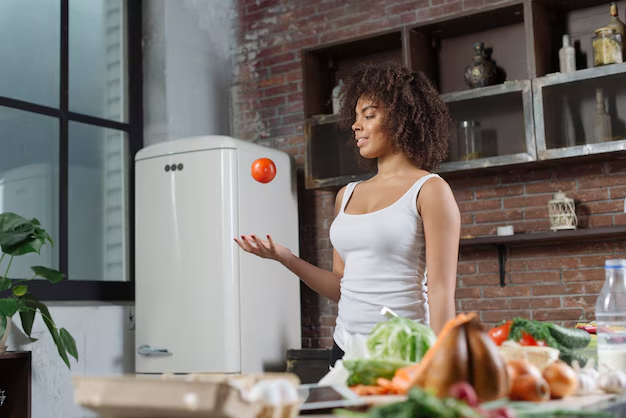Keeping Cool: Optimal Temperatures and Tips for Your Refrigerator
When thinking about the joys of modern convenience, having a refrigerator at hand might top many people's lists. From storing our leftovers to keeping ingredients fresh, refrigerators play a crucial role in our everyday lives. But how often do we think about the temperature inside this essential appliance? Understanding the optimal temperature for your refrigerator not only ensures food safety but also enhances energy efficiency.
Why Temperature Matters
Before diving deep into the specifics, let's take a moment to emphasize why the right temperature setting is paramount for your refrigerator. Improper temperature settings can lead to several issues, ranging from compromised food safety to energy inefficiencies.
Food Safety
Ensuring your refrigerator maintains an optimal temperature is vital to prevent bacterial growth. Bacteria such as Salmonella and E. coli can multiply rapidly if the temperature is not cool enough, posing health risks to you and your family. On the flip side, temperatures that are too cold can cause certain foods and beverages to freeze unintentionally, impacting taste and texture.
Energy Efficiency
Every appliance in your home contributes to the overall energy consumption. Setting your refrigerator to an appropriate temperature ensures that it runs efficiently without overburdening your electricity bill. Simple adjustments in temperature can make a substantial difference in energy usage.
What is the Optimal Refrigerator Temperature?
Experts generally recommend keeping your refrigerator at or below 40°F (approximately 4°C). This temperature is widely accepted as the sweet spot for both food safety and energy efficiency.
Factors Influencing Temperature
While the 40°F guideline is a standard benchmark, several factors might influence the need for adjustment:
- Seasonal Changes: During hotter months, you might need to lower your refrigerator's temperature slightly to maintain freshness, while in cooler months, a slight increase might suffice.
- Ambient Temperature: The location of your refrigerator, such as near a sunny window or a heat-releasing appliance, can affect its internal temperature.
- Contents of the Fridge: A fully stocked refrigerator retains cold better than a sparsely filled one. More contents can help in maintaining a stable temperature even when the door is frequently opened.
Tips for Maintaining Optimal Refrigerator Temperature
Maintaining the right temperature isn't just about setting a dial. Here are actionable tips to ensure your refrigerator remains cool effectively:
- Regular Monitoring: Invest in an external thermometer to monitor your refrigerator's temperature. This tool can provide real-time data on whether adjustments are necessary.
- Avoid Overloading: While a stocked fridge is more efficient, overloading can obstruct air circulation, leading to uneven cooling.
- Seal the Deal: Regularly inspect door seals and gaskets to ensure they are intact and not allowing cool air to escape.
- Clean Coils and Components: Dust and debris can accumulate around the refrigerator's coils, working the appliance harder and affecting its cooling capability.
- Organize Your Fridge: Proper organization allows for better air circulation. Place frequently used items at the front to minimize the door being open for extended periods.
🔍 Quick Reference: Refrigerator Tips
- Temp Check: 40°F (4°C) or below 📉
- Seasonal Adjustments: Adjust for summer & winter 🌤️❄️
- Full But Not Packed: Ensure air can circulate 🌀
- Seal Inspections: Check door gaskets regularly 🔍
- Coil Cleaning: Keep your coils dust-free 🚿
Beyond Temperature: Ensuring Refrigerator Efficiency
While temperature is fundamental, other practices can further optimize your refrigerator's performance:
Placement and Positioning
Strategic placement can significantly influence a refrigerator’s efficiency. Ideally, your refrigerator should be positioned away from direct sunlight and sources of heat, such as ovens and dishwashers. Allow for a space between the wall and the refrigerator’s back so it can ventilate properly.
Defrost and Deice
Modern refrigerators often have automatic defrost features, but if you own an older model or a simpler unit, regular manual defrosting helps maintain efficiency. Excess frost can act as an insulator, causing your refrigerator to work harder.
Upgrade When Necessary
Sometimes, despite your best efforts, an old appliance might need more than just tweaking. If your refrigerator frequently struggles with maintaining temperature, or is guzzling more electricity than it should, it might be a sign that it's time for an upgrade. Newer models are not only more energy-efficient but come equipped with smart features that enhance usability.
FAQ: Common Refrigerator Temperature Questions
What should I do if my fridge is too warm?
- Check the door seal, ensure proper organization to allow air circulation, and verify that the temperature controls are set to the recommended level.
How can I tell if my fridge is too cold?
- If foods and beverages are unexpectedly freezing, consider raising the temperature slightly, especially for compartments located at the back.
What is the ideal freezer temperature?
- For your freezer, 0°F (-18°C) is generally recommended to ensure food preservation and safety.
Can I lower my electricity bill with fridge maintenance?
- Yes! Regular maintenance like cleaning coils and ensuring a proper seal can help your fridge operate more efficiently, lowering energy bills.
Making the Most of Your Refrigerator
Understanding the "how" and "why" behind your refrigerator's ideal temperature enhances your ability to upkeep its efficiency and prolong its lifespan. Routine checks and minor adjustments can make significant differences, ensuring you get the best out of your appliance while keeping energy consumption in check.
By combining practical knowledge with consistent maintenance, you not only secure the health and safety of your food but also contribute positively to energy conservation. Trust in these guiding principles, and your refrigerator will serve you well for years to come. 👌

